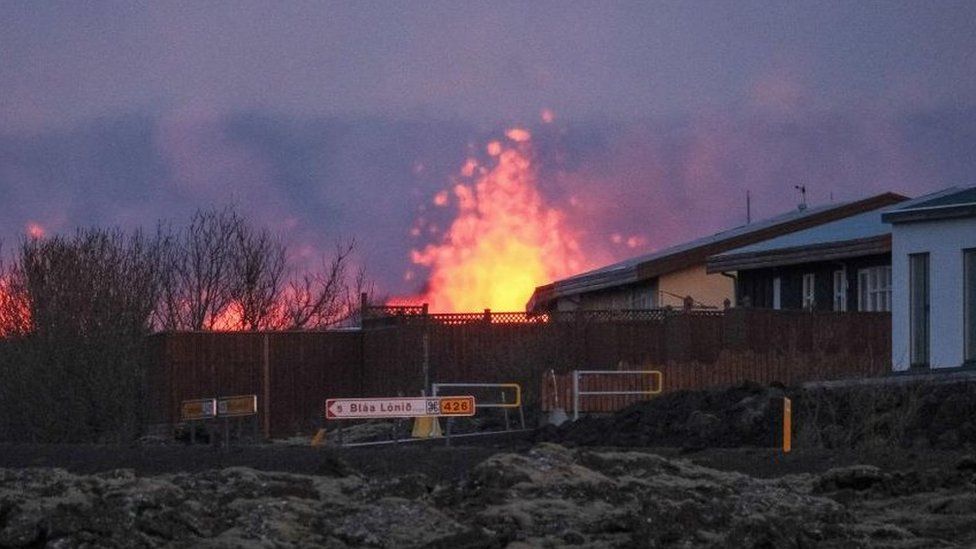-

-
-
Loading

Loading

Iceland has declared a state of emergency after lava from a volcanic eruption damaged important hot water pipes. Residents in the Reykjanes peninsula have been advised to minimize their use of hot water and electricity, as it may take several days to repair the pipes. There are concerns that other crucial pipelines near the Svartsengi power station could also be affected if the lava flow does not subside soon. This is the third eruption on the peninsula since December. Aerial footage shows a new 3km-long fissure ejecting streams of lava into the air. The capital city, Reykjavik, located approximately 40km away, can see the smoke illuminated by the lava flow. The popular tourist destination, the Blue Lagoon, has been forced to close once again due to the lava flows and is expected to remain closed on Friday. The Department of Civil Protection and Emergency Management is working to ensure that more than 20,000 people affected by disrupted access to hot water have a continuous supply. Volcanologist Dr. Evgenia Ilyinskaya stated that although the Svartsengi power station is partially protected by barriers, about 30,000 people across the peninsula rely on the threatened hot water pipes. However, the hope is that the speed of the lava flow will decrease, similar to previous eruptions, and the pipeline will remain intact. The Icelandic Meteorological Office reports that the eruption's strength is diminishing. Unlike the explosive eruptions in 2011 that sent ash into the atmosphere, recent eruptions in southern Iceland involve lava pouring from fissures. Thursday's eruption is in the same general area as the December eruption, meaning it is unlikely to cause further damage to the abandoned town of Grindavik, where three houses were destroyed last month. Scientists anticipate that these eruptions may persist for years, and some residents have accepted that they may never return to their homes. With 33 active volcano systems, Iceland is located above the Mid-Atlantic Ridge, the meeting point of two of the Earth's largest tectonic plates.